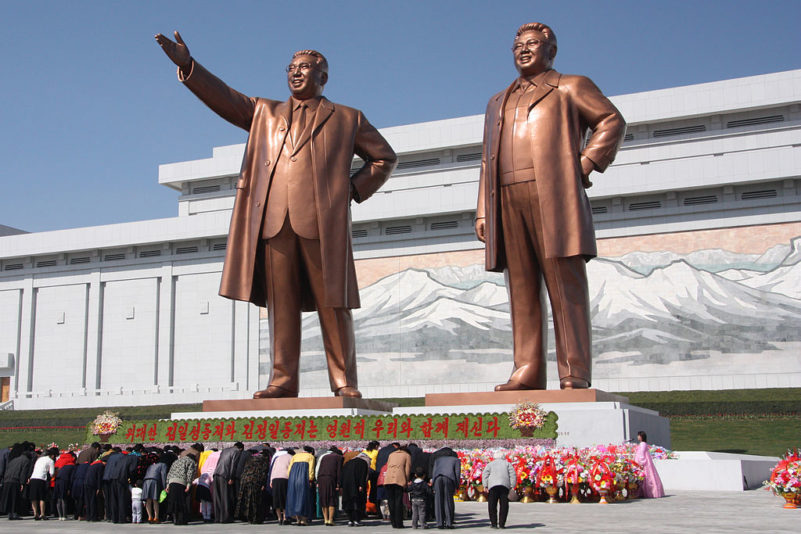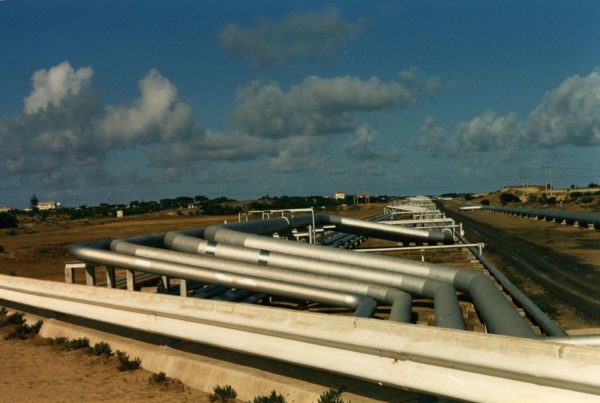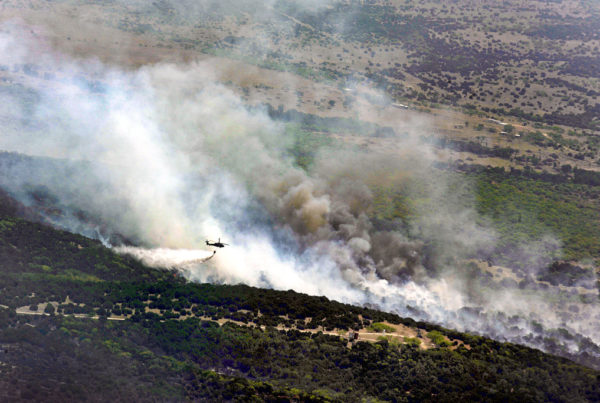Early Monday morning, in the country’s latest display of aggression toward the West, North Korea fired four intermediate range ballistic missiles into the Sea of Japan. Three missiles landed within Japan’s exclusive economic zone, leading Japanese Prime Minister Shinzo Abe to call North Korea’s actions a clear violation of several UN Security Council resolutions.
These overnight developments underscore just how rapidly North Korea’s weapons program is moving. With a launch a missile month ago and more expected over the next 30 days, the country’s weapons program does not appear to have been slowed by U.S. cyberwarfare efforts to sabotage it. President Barack Obama is reported to have warned then President-elect Donald Trump that the North Korean threat was likely the most urgent problem he would encounter.
Jeremi Suri, a professor at The University of Texas at Austin’s Lyndon B. Johnson School of Public Affairs has warned about the North Korean threat before. He says it’s no surprise this is happening now.
“I think the North Korean regime is concerned that the United States and Japan, South Korea and China,are going to try to undermine its legitimacy and continued existence,” Suri says. “The North Korean regime is using military force to try and blackmail its neighbors and the United States.”
Suri says there are three possible underlying causes for North Korea’s recent ballistic missile launch.
The first is that annual military exercises between the United States and South Korea occur around this time of year. It’s not uncommon for North Korea to express its concern by reacting in this way – they also launched a few missiles around this time last year.
The second and third reasons, Suri says, come from uncertainty about what actions President Trump is going to take. North Korea likely fears he’s going to look for some area where he can act and show his strength. Additionally, North Korea is concerned the president will assist its neighbors, which North Korea considers to be adversaries.
Though the intermediate range missiles that were launched yesterday only travelled about one thousand miles, and the country would need to launch 5,000 or more missiles to pose a direct threat to the U.S., Suri says it may not be long before they are able to create missiles that could travel that distance.
“Experts who know more about the technical side of this than I do have said that the North Koreans are getting close within months, maybe a few years, of possibly having a capability to reach the west coast of the United States,” Suri says.
In a 2013 op-ed column in The New York Times, Suri suggested a solution to the looming threat: bomb them.
“As the North Koreans approach that capability, we should destroy any missile before they test it,” Suri says. “We want to slow and, if at all possible, perhaps stop the North Koreans from continuing along this path of developing weapons that are going to be more and more threatening to more and more countries.”
While Suri thinks the U.S. should take these preventative measures to warn North Korea, he says he strongly advises against reintroducing nuclear weapons to South Korea.
“The last thing northeast Asia needs is more nuclear powers,” Suri says. “I would remind everyone: China, South Korea, and Japan have major island disputes and have come close to shooting each other in recent years.”
But, Suri says, the United States does need to maintain its mediating role in northeast Asia by maintaining close relationships with South Korea, Japan and China.
“We need to put more and more pressure on North Korea and we need to be prepared for a common military reaction,” Suri says.
Suri expects North Korea to continue taking aggressive actions outside its borders.
“What I expect to see in coming weeks and months is not only more North Korean nuclear launches, but more activities like what we saw in Malaysia where they assassinated the North Korean leader’s half-brother,” Suri says. “I expect to see more action like that, that we have to be ready to react to.”
Written by Morgan O’Hanlon.
















